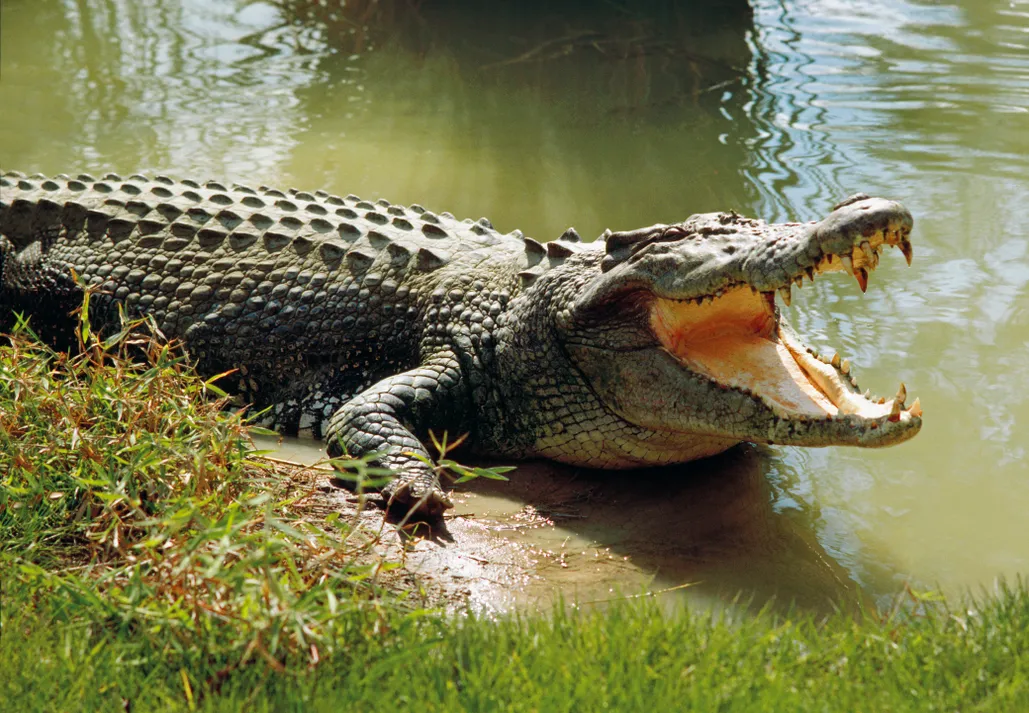A Joyful Journey into the World of the Australian Crocodile
Hey there, amazing parents! Are you ready to embark on a wildly educational adventure down under, where the spectacular Australian crocodiles reign supreme? These magnificent creatures are not only a marvel of nature but also an important part of Australia’s cultural heritage and ecosystem. So, grab your safari hats, and let’s dive into the exciting world of Australian crocodiles!
What Makes Australian Crocodiles So Special?
Did you know Australia is home to some of the most intriguing crocodilian species on the planet? From the stealthy Freshwater Crocodile (Crocodylus johnstoni) to the formidable Saltwater Crocodile (Crocodylus porosus), also known as ‘Salties’, these reptiles captivate the minds of both kids and adults alike. With a lineage dating back millions of years, these ancient creatures are like living dinosaurs, offering an incredible opportunity to learn about resilience, adaptation, and the circle of life.
Where to Find Australian Crocodiles?
Australian crocodiles are primarily found in the northern regions of Australia. They thrive in a variety of habitats, including rivers, estuaries, and coastal marshes. Places like Kakadu National Park and the Daintree Rainforest are famed for their crocodile populations. Therefore, it’s beneficial to know where to go if you’re keen on giving your family an up-close look at these reptilian wonders in their natural habitat.
Staying Safe Around Crocs: Tips for the Whole Family
Fun family times come with a dollop of caution when you’re in croc territory. It’s pivotal for families to understand and respect the power of Australian crocodiles. Here are some golden rules:
- Observe Guidelines: Always follow the safety signs and guidelines provided in crocodile habitats.
- Supervision is Key: Keep a watchful eye on children at all times near water bodies that might be home to crocs.
- Don’t Feed the Crocs: Feeding crocodiles can encourage them to associate humans with food, leading to dangerous encounters.
- Maintain a Safe Distance: Always stay well back from the water’s edge, especially in areas known to have crocodile populations.
Educational Fun – Learn Through Play!
Learning about Australian crocodiles can be an interactive and fun experience for kids. Here are some activities that will turn your kiddos into junior herpetologists in no time:
- Crocodile-Themed Art Projects: Let your child’s imagination soar with crocodile-themed drawings, paintings, and crafts.
- Interactive Storytelling: Read exciting stories and legends about crocodiles to stimulate a love for literature and history.
- Virtual Zoo Visits: Many zoological parks offer virtual tours that feature crocodile enclosures. This is a safe way to observe crocs without leaving home!
We’re just getting started on this croc-tastic journey! In the next part of our guide, we’ll explore more fascinating facts about the robust anatomy of Australian crocodiles, their diet and behaviour, as well as conservation efforts that ensure these remarkable creatures continue to thrive for generations to come. So, stay tuned as we continue to navigate the extraordinary world of these prehistoric giants with care, respect, and endless curiosity.

5 Essential Things Parents Should Know About Australian Crocodiles
1. Understanding Crocodile Behavior to Protect Your Family
Crocodiles are apex predators and very territorial. As parents, it’s crucial to teach your family about the behavior of crocodiles. Always stay vigilant, as crocs can remain hidden underwater for long periods and can strike with astonishing speed when they feel threatened or are on the hunt.
2. Identifying Crocodile Habitats
Before you plan a day out near water in croc country, make sure you know the signs of a crocodile habitat. Look for warning signs or ask locals about the presence of crocs. It’s also handy to note that saltwater crocodiles can live in fresh water and can travel long distances by sea, so don’t assume that a water body is safe without proper verification.
3. The Importance of Crocodile Conservation
Teach your children that every creature has a role in the environment, including crocodiles. Discuss the importance of crocs in maintaining healthy ecosystems as they keep other animal populations in check. Crocodiles are a protected species, and it’s important to teach kids the significance of wildlife conservation.
4. Preparing for an Outing in Crocodile Territory
When venturing into areas where crocodiles may live, always plan ahead. Bring along first-aid kits and have an emergency plan in place. Wear appropriate clothing and footwear, and never camp too close to the water’s edge. Also, check with local wildlife agencies for recent sightings and safety advice.
5. Responding to a Crocodile Encounter
In the unlikely event that you encounter a crocodile, it’s essential to know how to react. Move away slowly and calmly if the crocodile is at a distance. If you’re close and the crocodile shows aggressive behavior, back away without turning your back to it. Never provoke or harass a crocodile, as this can lead to a dangerous situation.
Armed with these key insights and safety tips, you can confidently introduce your family to the awe-inspiring world of the Australian crocodile, while ensuring everyone stays safe and informed. Remember, the more we understand about these fascinating creatures, the more we can appreciate their role in nature. Let’s continue to nurture a spirit of adventure whilst spreading knowledge and respect for the wild!
For more great fun click here. For more information see here
Disclaimer
The articles available via our website provide general information only and we strongly urge readers to exercise caution and conduct their own thorough research and fact-checking. The information presented should not be taken as absolute truth, and, to the maximum extent permitted by law, we will not be held liable for any inaccuracies or errors in the content. It is essential for individuals to independently verify and validate the information before making any decisions or taking any actions based on the articles.




